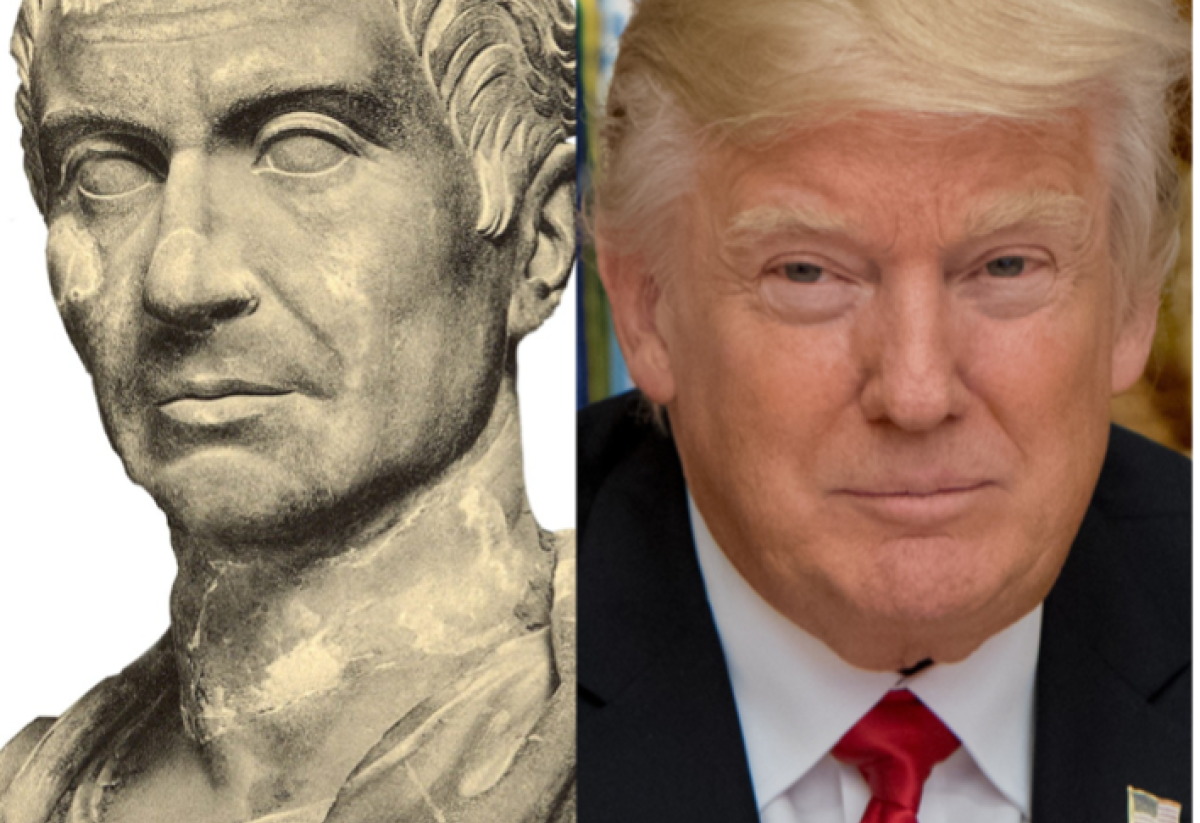Opinion
History Tells Us that Trump Losing Could be the Greatest Threat to Democracy

It is often claimed-especially by democratic operatives-that Donald Trump winning the 2024 presidential election would threaten the survival of American democracy. However, this logic may be completely backwards. This is because of the incentive structure that would result from him losing; if he loses, he will face legal charges that will likely send him to prison. These are the same circumstances that incentivised Julius Caesar to bring an end to the Roman Republic. As Karl Marx wrote, “History repeats itself, first as a tragedy, second as a farce”.
In 50 BC, Julius Caesar was ordered by his enemies in the senate to give up control of the province of Gaul (modern day France), including its associated army, and return to Rome. Before this point, he had never indicated any real intention of marching on Rome, or subverting democracy. He instead only expressed a desire to run for consul- the highest elected public office of the Roman Republic- once again. However, the senate deliberately prevented him from doing so. And without his army, and the legal immunities with which governorship of Gaul (imperium) and consul would have accorded him, he could expect to be buried in partisan legal charges upon his return to Rome. His main political interlocutor, Cato, had been promising as much for some time.
So, ironically, the charges that were meant to limit Caesar’s power, incentivised him to grab as much power as possible, by whatever means necessary. This is because they forced him to choose between: (1) following the orders of the senate, and likely facing imprisonment or death, and (2) marching his army to Rome to seize the power to protect himself, and in the process undermining the rules and institutions of the republic. He chose the latter, with the consequence being that a centuries-old democratic republic was destroyed.
Jump forward to today, and former president Donald J. Trump faces three criminal charges-two on the federal level and one on the state level- and has a conviction on the state level. Whether or not these prosecutions are being used by his enemies for political ends-as they were in Caesar’s case- he certainly believes they are. Moreover, Trump’s best legal strategy is to attain power. While his conviction is unlikely to send him to prison, his remaining three charges are liable to do so. If he wins in November however, the threat these pose is significantly diminished. As president he would be able to pardon himself of any criminal offenses tied to his federal charges-including his most damning charge (the documents case)- and would be able to delay any jail time resulting from his remaining state charge until at least after his term in office.
Thus, if Trump loses the election, and with it his best legal strategy, he will face a similar incentive structure as Caesar did. For in such an instance he will have to choose between: (1) accepting losing at the hands of his perceived enemies, and his imminent imprisonment and (2) attempting to undermine democratic institutions to get the power necessary to save himself. If the events of January 6th are any indication, I think it is obvious that he will choose the latter.
Such a choice has the potential of extinguishing democracy in America like in Rome. This may seem far-fetched, but it probably did in Rome as well. After all, Caesar’s enemies in the senate certainly did not expect their prosecution of Caesar to end with the death of their cherished republic. Democratic systems of government are by no means invincible and are more vulnerable to collapse than many realise. This weakness is echoed in the words of the Roman poet Cassius Dio: “Indeed, if ever there has been a prosperous democracy, it has in any case been at its best for only a brief period.… for it does not belong to the majority of men to acquire virtue.” So, then, those who are concerned for the survival of democracy and are rooting for Trump to lose should perhaps be careful what they wish for.